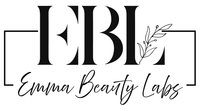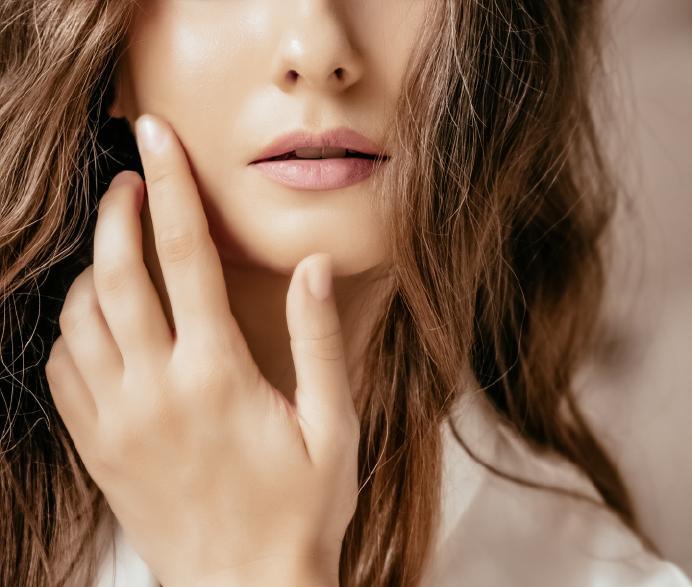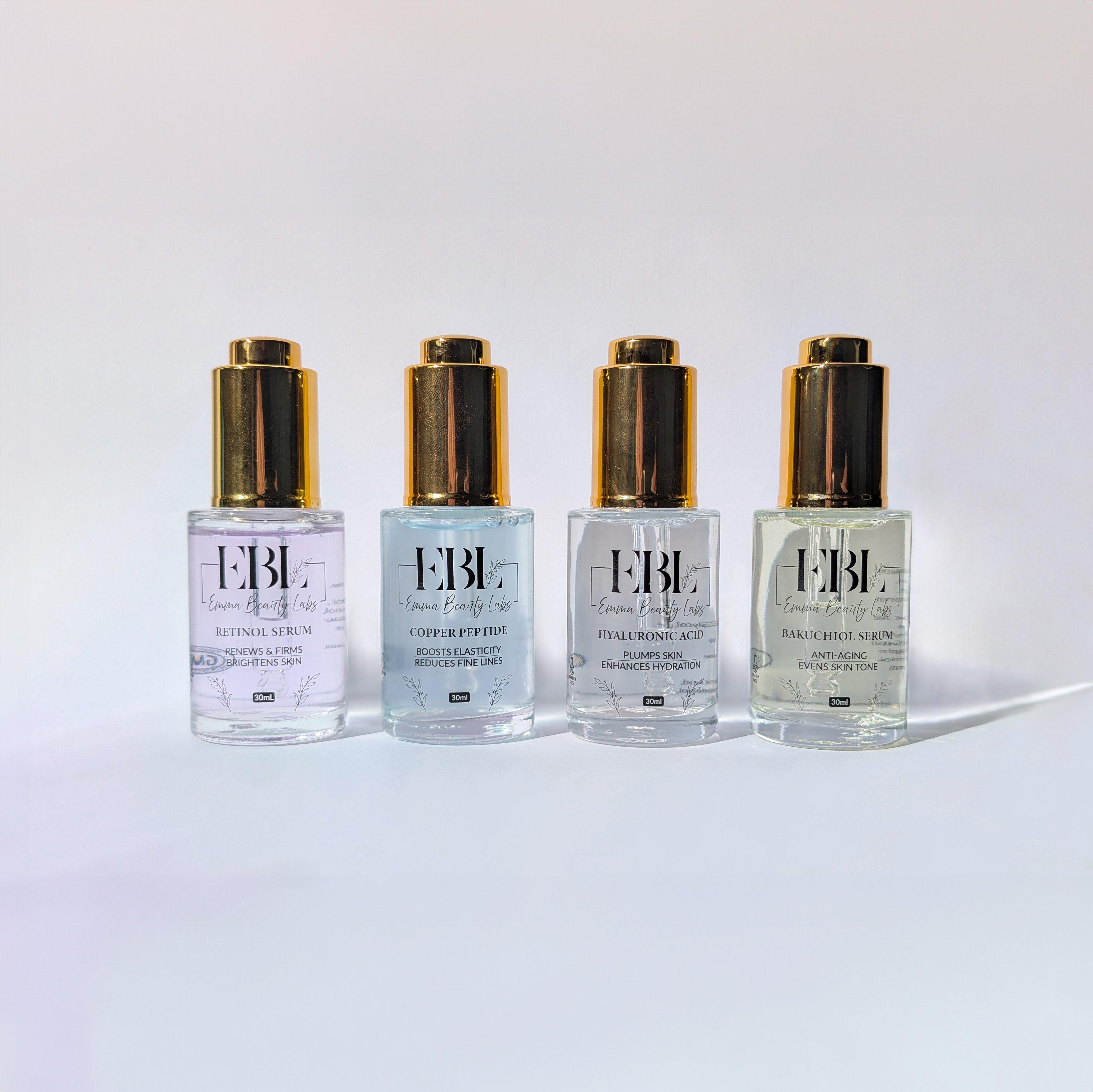In today’s beauty world, less is becoming more. The minimalist skincare movement is gaining momentum, not just as a trend but as a philosophy grounded in science. At its core, this movement is about trusting your skin to do what it’s naturally designed to do—stay healthy, repair itself, and protect against external threats.
The minimalist skincare movement focuses on simplifying skincare routines by using fewer, high-quality products that prioritize the skin’s natural functions. This approach emphasizes the use of targeted active ingredients that support the skin's health and resilience, allowing it to thrive without being overwhelmed by excessive products, overuse of harsh ingredients, or complicated regimens.
But how exactly does the skin maintain its own health, and why should we be cautious about overloading it with products?
The Body’s Natural Ability to Keep Skin Healthy
Your skin is a powerful organ with its own mechanisms for maintaining balance. The outermost layer of skin, the stratum corneum, acts as a barrier, preventing moisture loss and defending against harmful environmental factors like UV radiation and pollution. A research paper published in Experimental Dermatology highlights our skins incredible abilities as a protective barrier. Skin cells naturally regenerate, repair, and adapt to external damage, driven by internal processes such as collagen production, hydration retention, and antioxidant defence systems.
Did you know your skin naturally exfoliates on its own? A study published in the Journal of Dermatological Science, explains this process, which is called desquamation. It takes about 28 days, during which new skin cells form, mature, and shed. For some people, with the right skincare routine and proper maintenance, external exfoliation may not even be necessary.
A 2012 article published in Practical Dermatology explains how the skin’s natural moisturizing factors (NMFs) and lipid layers function as key elements of the body’s hydration and barrier systems. When the skin is over-exfoliated or exposed to harsh chemicals, this natural defence can be weakened, leading to irritation and premature aging.
Your Amazing Skin Microbiome

Understanding the skin's delicate microbiome is crucial for maintaining healthy skin. The outer layer of our skin is home to a variety of beneficial bacteria, which play important roles in skin health. These microbes can be influenced by factors like pH, temperature, and age. A 2023 research article published in Skin Pharmacology and Physiology explains how these friendly bacteria interact with the skin, helping to produce substances called antimicrobial peptides (AMPs) that fight off harmful germs, help support our immune system and maintain a strong skin barrier. However, using too many skincare products can disrupt this balance, allowing harmful bacteria to thrive and beneficial ones to diminish. By adopting a minimalist skincare approach, you can support your skin's natural microbiome, keeping it healthy and resilient without overwhelming it with excessive products.
Why Less is More: The Case for Minimalist Skincare
Minimalist skincare is about using fewer, more targeted products that complement the skin's natural processes rather than overwhelming them. By reducing the number of products in your routine, you can prevent disrupting the skin's barrier and allow its natural repair mechanisms to function optimally.
According to a 2023 article by Dr. Kellie Reed for Westlake Dermatology, using overly powerful skincare ingredients can disrupt the skin barrier. Over-complicated skincare routines may contribute to skin barrier dysfunction, suggesting that excessive use of products, particularly those with harsh chemicals, can impair the skin's natural ability to regulate itself.
This emphasizes the importance of “skincare minimalism”, advocating for products that support, rather than replace, the body’s innate processes.
Supporting the Skin’s Natural Defences with fewer, more targeted Ingredients
While minimalism encourages a pared-back routine, it doesn't mean abandoning skincare altogether. The right products, formulated with key active ingredients, can enhance the body’s natural protection against environmental stressors like free radicals, UV damage, and pollution.
1. Retinol for Collagen Production
Retinol is one of the most studied and proven anti-aging ingredients. By stimulating collagen production and increasing skin cell turnover, retinol enhances the skin’s natural ability to repair itself. Biomolecules published a study in 2023 supporting retinol's efficacy in reducing wrinkles, making it a staple for a minimalist skincare routine focused on long-term skin health.
2. Antioxidants and Copper Peptides
Research shows that antioxidants like vitamin C and copper peptides work in harmony with the skin’s natural mechanisms to neutralize free radicals. A 2018 article featured in Cosmetics highlights how copper peptides promote wound healing and boost the skin’s natural antioxidant defence, supporting collagen synthesis and skin repair.
3. Niacinamide and Skin Barrier Function
Niacinamide, a form of vitamin B3, has been found to enhance the skin’s barrier function by improving hydration and reducing inflammation. Clinical trials published in the Journal of Cosmetic & Laser Therapy emphasizes that niacinamide helps regulate oil production and boosts the skin’s ability to retain moisture, making it an ideal minimalist skincare ingredient.
4. Hyaluronic Acid for Hydration
Hyaluronic acid, a naturally occurring molecule in the skin, plays a crucial role in moisture retention. According to a 2023 paper studying non-invasive skin rejuvenation, topically applied hyaluronic acid supplements the skin’s natural ability to maintain hydration, enhancing elasticity and reducing the appearance of fine lines.
Finding Balance: Less is More with the Right Products

At Emma Beauty Labs, we believe that skincare should be simple yet effective. Our minimalist philosophy encourages the use of targeted ingredients like copper peptides, retinol, niacinamide, and hyaluronic acid to support your skin’s natural processes. By doing so, we help your skin protect itself from free radicals, collagen loss, dehydration, and pollution while allowing it to stay healthy and youthful on its own.
Our Radiant Retinol Serum and Blissful Bakuchiol Serum are formulated to stimulate natural collagen production, reducing fine lines and wrinkles while working in harmony with your skin’s natural processes. By choosing products specifically for your skin goals, like our Copper Peptide Serum and Dual Action Hyaluronic Acid, your skin gets the support it needs to remain resilient and hydrated without being overwhelmed by unnecessary chemicals.
Conclusion
Minimalist skincare is more than just a trend - it’s about getting back to basics and trusting your skin’s natural abilities. By choosing products that support these functions, you empower your body to do what it does best: maintain healthy, vibrant skin. Rather than overwhelming your skin with dozens of products and elaborate skincare routines, focus on using a few targeted ingredients that complement your skin's natural mechanisms. Less really is more when it comes to achieving a radiant, youthful complexion.
Final Thought
It is important to note that everyone's skin is different! Some skin conditions absolutely require specific regimes and that's perfectly fine. But if you are noticing unusual flare ups, break outs, dryness or anything out of the ordinary for you, instead of doubling down or looking for the next miracle product, why not consider the 'less is more' approach?
References
Draelos, Z. D., Matsubara, A., & Smiles, K. (2006). The effect of 2% niacinamide on facial sebum production. Journal of Cosmetic & Laser Therapy, 8(2), 96–101. https://doi.org/10.1080/14764170600717704
Fowler, J. (2012) Understanding the role of natural moisturizing factor in skin hydration. Practical Dermatology, 9, 36-40. https://assets.bmctoday.net/practicaldermatology/pdfs/pd0712_ftr_nmfreview.pdf
Milstone, L. M., Hu, R. H., Dziura, J. D., & Zhou, J. (2012). Impact of epidermal desquamation on tissue stores of iron. Journal of dermatological science, 67(1), 9–14. https://doi.org/10.1016/j.jdermsci.2012.04.003
Pickart, L., & Margolina, A. (2018). Skin Regenerative and Anti-Cancer Actions of Copper Peptides. Cosmetics, 5(2),29. https://doi.org/10.3390/cosmetics5020029
Proksch, E., Brandner, J.M. & Jensen, J.-M. (2008), The skin: an indispensable barrier. Experimental Dermatology, 17, 1063-1072. https://doi.org/10.1111/j.1600-0625.2008.00786.x
RajkumarChandan N., LioShi, V. (2023) The skin barrier and moisturization: Function, disruption, and mechanisms of repair. Skin Pharmacology and Physiology, 36 (4), 174–185. https://doi.org/10.1159/000534136
Reed, K. (2023). Skin barrier basics: Protection, repair, and everything else you should know. https://www.westlakedermatology.com/blog/skin-barrier-protection-repair
Tanha, A., Rabiee, M., Rostami, A., & Ahmadi, S. (2023). A green-based approach for noninvasive skin rejuvenation: Potential application of hyaluronic acid. Environmental Research, 234, N.PAG. https://doi.org/10.1016/j.envres.2023.116467
Quan T. (2023) Human Skin Aging and the Anti-Aging Properties of Retinol. Biomolecules, 13(11), 1614. https://doi.org/10.3390/biom13111614








